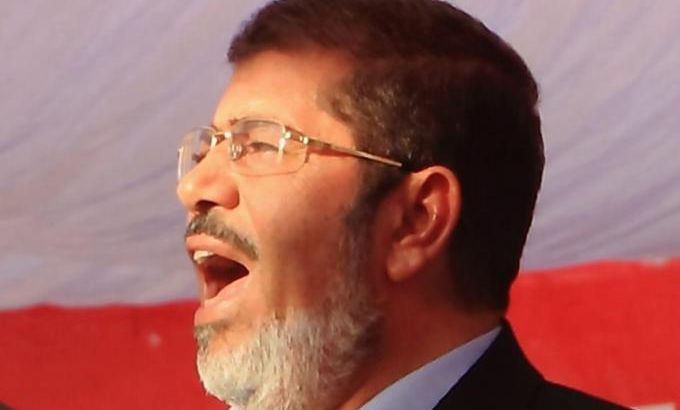
Egypt: One year of Mohamed Morsi
Is Egypt’s president to blame for the nation’s problems, or should the opposition share some of the responsibility?
This Sunday will mark a year to the day that Egypt’s first freely elected president came into office, but the country continues to face a growing rebellion.
Having been a year in office, if the president wants to report to the populous, it would probably be wise ... to do so on a regular basis. It's highly unusual that any leader in the world would make a speech for two and half hours.
Opposition groups are planning street rallies this weekend aimed at forcing President Mohamed Morsi out of office, while the main opposition coalition calls for early presidential elections. Their charge is that the president has failed to fulfil promises to restore security, improve the economy, share power and institute social justice – and they are calling for his resignation.
Morsi used a televised address to take stock of his first 12 months in office. He offered opponents a say in amending a disputed constitution, and a forum to seek national reconciliation. He also admitted his mistakes, but accused those he called “enemies of Egypt” for causing the nation’s problems.
“I have had made a lot of mistakes and have had some successes at the same time. That’s a fact. Economic growth has been delayed and we must progress in this area. It requires political settlement and stability. In the past year I have discovered that the country’s institutions need dramatic reforms to achieve the revolutions goals. We must steer away from traditional solutions.
“It is no secret that our revolution has enemies. Abroad, there are those who realise what a free, strong and developed Egypt is capable of presenting for its people. And inside the country, there are those who think they can turn the clock backwards to the corrupt, oppressive state it was before. It seems that there are those between us who cannot imagine living any other way,” said Morsi.
Shortly after his address, protesters attacked the Freedom and Justice Party headquarters in northern Egypt. The building was ransacked and items set on fire. This fuelled concern about the mass demonstrations planned for this weekend, as the country becomes increasingly and dangerously divided.
One of the groups that has tapped into the discontent caused by the economic crisis is the Rebellion (Tamarod) movement. Set up last month, the movement is supporting calls for Morsi’s resignation.
”The
is that he showed everybody [that] it was the first time for a president of Egypt to present a statement of what he’s done and his mistakes of the first year in power; and also to show his accomplishments.”]
Its co-founder Mahmoud Badr said: “The campaign’s goal is to collect signatures from the Egyptian people to withdraw confidence from President Mohamed Morsi, due to his failures politically, economically and socially, and after all the Egyptian blood which has spilled during his era. He has proven that he can’t achieve any of the goals of the revolution, so we Egyptians decided to establish a campaign to demand the withdrawal of confidence from Mohamed Morsi.”
Morsi won the presidential election by a narrow margin in June last year. He ran as a candidate for the Freedom and Justice Party, which is the political wing of the Muslim Brotherhood.
In August, he set his sights on the military, dismissing his defence minister and stripping the military of any say in legislation. Then he turned to the economy, seeking a $4.8bn loan from the International Monetary Fund, which is yet to be confirmed.
In November, Morsi took on the judiciary, stripping judges of the right to challenge his decisions, only to back down in the face of mass protests.
In December, it was the turn of the constitution. A draft was approved, that boosted the role of Islam and was backed by a public referendum; but it also drew more opposition protests.
Now, after a year of politics and protests, Morsi appointed to key posts allies who want Islam to play a greater role in politics. And he accused the opposition of rejecting calls for national reconciliation.
So, is president Morsi to blame for Egypt’s problems, or should the opposition share some of the responsibility?
To discuss this, Inside Story, with presenter Jane Dutton, is joined by guests: Nader Omran, the co-founder of Egypt’s Freedom and Justice Party; and Angus Blair, the founder of the Signet Institute, which specialises in economics, business and politics in the Middle East and North Africa.